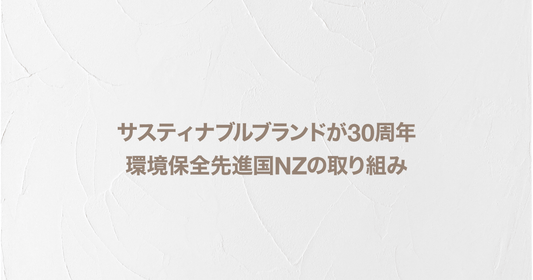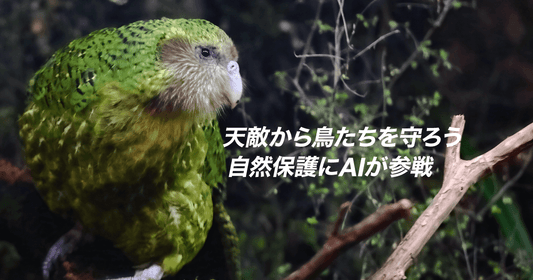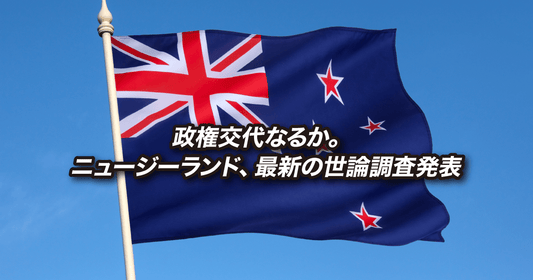
A new study has revealed that New Zealand lamb and beef have a low carbon footprint and are highly carbon efficient.
"Carbon footprint" means "footprint of carbon" in Japanese. It is a numerical value converted into CO2 equivalent of greenhouse gas emissions emitted during the process of manufacturing a product, from consumption to disposal and recycling. Greenhouse gases are said to have a large impact on global warming, and how to reduce emissions is a major issue around the world.
It has long been said that New Zealand meat is good for the environment, but the latest research has now proven this to be the case. Dairy farming is also a major issue in terms of its impact on the environment, such as global warming, so being able to promote the eco-friendliness of New Zealand meat is good news for both farm staff and consumers.
The farm's carbon footprint is less than half the global average
A comprehensive study by AgResearch , a New Zealand based national and international research organisation into dairy farming, compared the carbon emissions of farms in New Zealand with those around the world.
New Zealand ranches are becoming more carbon efficient, with around 20% of pasture land being left to grow grass to help absorb carbon dioxide, and as a result, the carbon footprint of ranches in New Zealand is roughly half the global average.
As a result, even when meat is exported outside New Zealand, the carbon footprint is the same as, or even slightly lower than, meat produced in export destinations around the world.
Reduces methane gas released from burps
Among the greenhouse gases emitted during dairy farming, the most problematic is methane gas, which is emitted from the burps of sheep and cows.
Sheep and cows are ruminant animals, meaning they swallow food, then regurgitate it in their mouths and chew it again. They have four stomachs and take time to digest food, but methane is produced by the action of microorganisms in the first stomach. When they burp, this methane gas is expelled from the body and released into the atmosphere, causing global warming.
New Zealand is spending huge amounts of money on research into genetics, feed, vaccines and pasture management to reduce methane gas emissions from sheep and cattle while maintaining production levels.
For sheep and cows, the production of methane gas means unnecessary energy consumption, so reducing methane gas production is not only an environmental problem, but it is also thought to improve the health of sheep and cows.
Forest conservation efforts
Grazing sheep and cattle requires vast tracts of land, and deforestation to create grazing land has become a global problem.
In New Zealand, efforts are being made to prevent deforestation caused by the expansion of pastureland. One of these efforts is to reduce the number of sheep and cattle kept while maintaining the same level of meat production. For example, in the case of sheep, they have succeeded in reducing the number of sheep from 50 million to 27 million.
As a result of these efforts, New Zealand has four million hectares less pastureland than it did 30 years ago, and fewer livestock per hectare.
Also, instead of grazing in the same place all the time, they use a rotation system where they move sheep and cattle between areas periodically. This is because if they graze in the same place for too long, the sheep and cattle will eat up all the grass and damage the land, so by rotating the animals, the land can be regenerated.
New Zealand is the second largest exporter of lamb in the world, and one of the world's largest exporters of beef. Therefore, it is very important for us to maintain an environmentally friendly dairy industry. With concerns about the negative impact of meat on the environment, this will be a big appeal to the world.
If you find New Zealand lamb or beef at the supermarket, be sure to add it to your shopping cart!
You can also eat New Zealand lamb chops at Bokumo .





